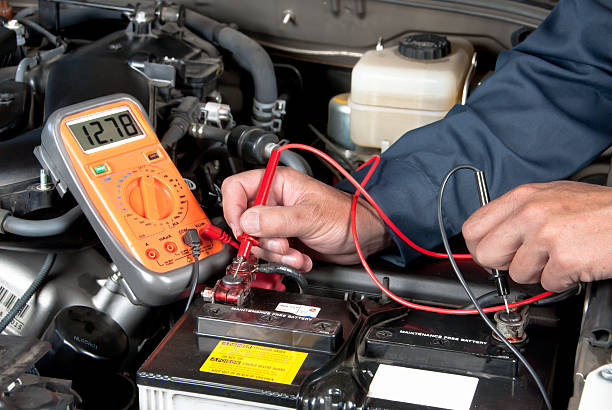From starting your engine on a frosty morning to keeping your headlights bright on a dark road, car batteries are the unsung heroes of your vehicle’s electrical system. Without a reliable battery, your car simply won’t go anywhere. In this comprehensive guide, we’ll dive into everything you need to know about car batteries, from how they work to choosing the right one for your vehicle.
Introduction to Car Batteries
Car batteries are essential components that provide the necessary electrical power to start your engine and keep various systems running smoothly. They come in different types, each designed for specific vehicles and driving conditions. Understanding the basics of car batteries is crucial for every vehicle owner.
How Car Batteries Work
At the heart of every car battery are chemical reactions that produce electricity. When you turn the key in the ignition, the battery delivers a burst of voltage to the starter, igniting the engine. As the engine runs, the alternator recharges the battery, ensuring a continuous power supply to the vehicle’s electrical components.
Common Signs of a Failing Battery
Recognizing the warning signs of a failing battery can save you from being stranded on the side of the road. Dim headlights, sluggish engine cranking, and dashboard warning lights are all indicators that your battery might be on its last legs.
Choosing the Right Car Battery
Selecting the right battery for your vehicle involves considering factors such as size, type, cold cranking amps (CCA), and reserve capacity (RC). Matching the battery specifications to your vehicle’s requirements ensures optimal performance and longevity.
Maintaining Your Car Battery
Proper maintenance is key to extending the life of your car battery. Regular inspections, cleaning battery terminals, and checking fluid levels are essential tasks that every car owner should perform to keep their battery in top condition.
Charging a Car Battery
In the event of a dead battery, knowing how to safely jump-start your car or use a battery charger can get you back on the road quickly. Following the correct procedures minimizes the risk of damage to your vehicle’s electrical system.
Replacing a Car Battery
When it’s time to replace your car battery, having the right tools and following safety precautions are crucial steps. Installing a new battery correctly ensures reliable performance and prevents potential hazards.
Recycling Car Batteries
Disposing of old car batteries responsibly is essential for protecting the environment. Recycling facilities can safely extract valuable materials from spent batteries, reducing pollution and conserving natural resources.
Extended Battery Life Tips
Maximizing the lifespan of your car battery involves simple practices like avoiding deep discharges, keeping the battery charged, and storing your vehicle properly when not in use. These habits can significantly prolong the life of your battery.
Benefits of Upgrading to a High-Performance Battery
For drivers seeking enhanced reliability and performance, upgrading to a high-performance battery offers several advantages. These batteries are designed to withstand extreme conditions and provide consistent power for demanding applications.
Conclusion
Your car battery plays a vital role in keeping your vehicle running smoothly. By understanding how car batteries work, choosing the right one, and practicing proper maintenance, you can ensure reliable performance and avoid unexpected breakdowns.
FAQs
How long does a car battery typically last?
- Car batteries typically last between 3 to 5 years, depending on factors such as usage and maintenance.
Can I jump-start my car battery with another vehicle?
- Yes, you can jump-start your car battery using jumper cables and another vehicle with a charged battery.
What is the difference between a regular and a deep-cycle battery?
- Regular batteries are designed for starting engines, while deep-cycle batteries are designed for continuous power delivery over extended periods, such as in marine or RV applications.
Why does my car battery die in cold weather?
- Cold weather can reduce a battery’s ability to generate power due to chemical reactions slowing down, resulting in decreased voltage output.
Is it safe to charge a car battery while it’s still connected to the car?
- It’s generally safer to disconnect the battery from the vehicle before charging to prevent potential damage to the vehicle’s electrical system.

